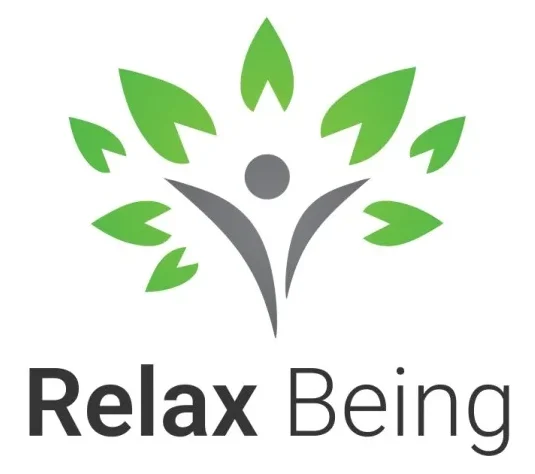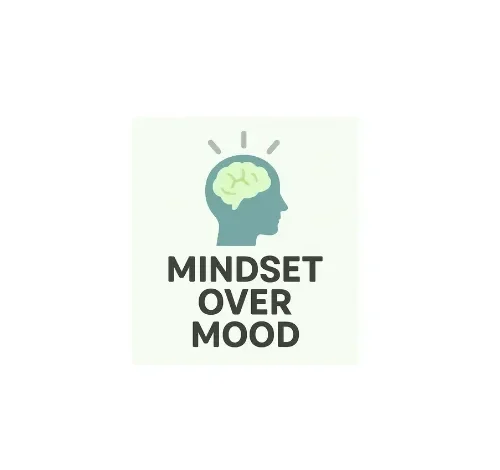Exercise and Mental Health
When it comes to exercise and mental health, the connection goes far beyond physical strength. I’ve personally found that simple activities like walking, stretching, or a quick home workout can have a mood-boosting effect that feels almost immediate.
Combining moving with meditation, journaling, or even listening to music transforms ordinary routines into powerful tools for a healthy mind. The positive benefits aren’t just anecdotal; studies show that regular movement can complement treatment for various medical conditions while enhancing overall physical well-being.
What I love most is how accessible it all is. Many of the exercise and mental health are free, easy, fun, and affordable, yet proven to help reduce stress and improve emotional resilience. Pairing exercise and mental health with social interaction or group activities provides support and motivation, making it easier to stick with a routine.
Whether you’re starting small or scaling up your workouts, the important thing is consistency, and knowing which top picks for your lifestyle can maximize both mental and physical health.
What are the benefits of exercise and mental health?
When I first started a regular workout routine, I was surprised by how quickly exercise and mental affected my overall mood . Engaging in physical activity boosts blood circulation, which nourishes the brain and enhances production of feel-good transmitters like endorphins. These powerhouse chemicals are central to experiencing pleasure and a sense of well-being.
Regular movement doesn’t just improve mood; it also fosters motivation, increased energy, and a healthy mind, making daily challenges easier to face.The positive effects extend far beyond just feeling good. Consistent exercise and mental health can lead to better sleep, reduced tiredness, and less stress, all while promoting the production of chemicals that maintain exercise and mental health.
Even a brief workout can make you feel lighter and more focused, reminding us that the synergy of body and brain is essential for sustained well-being. Personally, I’ve found that these small but steady bursts of physical activity are invaluable for keeping stress at bay and reinforcing a positive mood throughout the day.
How does exercise help depression and anxiety?
When dealing with depression and anxiety, the link between exercise and mental health is more than just physical activity; it’s a tool to regain control over your life. From my personal experience, working out consistently, whether through running, a marathon, or even a few pushups, creates a sense of power and engagement that directly combats symptoms of low mood and nervous tension.
Setting attainable, measurable objectives for your fitness journey, like gradually increasing running distance or pushup count, builds self-efficacy, confidence, and determination, In this way exercise and mental health gives you a visible boost. Each small step towards reaching goals brings a rewarding sense of accomplishment, enhancing well-being and energy levels.
Creating a structured environment for exercise and mental health allows you to maintain control, keep interest, and find motivation in achievement. Whether it’s personal goals, new goals, or even harder-to-achieve goals, the pride and incentive of reaching goals push you to continue consistently.
The act of working out repeatedly strengthens persistence and fuels engagement, turning exercise into a sustainable habit that supports exercise and mental health. By celebrating small achievements, you develop a habit of setting and conquering objectives, enhancing confidence, well-being, and your sense of ideal physical fitness, all while actively reducing anxiety and depression.
What are Mental Health Exercises?
In my experience, incorporating activities specifically designed for exercise and mental health can dramatically improve your overall well-being. Simple daily practices like stretching, walking, or mindful breathing help maintain a healthy mind and body, creating a natural feel-good environment.
When we engage in these activities, the brain releases hormones such as dopamine, serotonin, and endorphins, which are powerful mood enhancers. I’ve noticed that even short, consistent sessions of these exercise and mental health can uplift your energy clarity.
The regular performance between this exercise and mental health can lessen the symptoms of depression and anxiety by strengthening the mind-body connection. By intentionally choosing practices that stimulate the release of dopamine, serotonin, and endorphins, we encourage the body to maintain a healthy balance, naturally supporting emotional resilience.
Over time, these activities not only improve your well-being but also help you feel-good consistently, fostering a more stable and positive outlook on life.
8 Best Exercises for Mental Health
1:Meditate
When I first learned meditation, I noticed how quickly it helped my mind and body shift from stressful moments into a calm state. By practicing deep diaphragmatic breathing for just a few minutes while focusing on a single point, like a candle or its flame, you can train your brain to stay in the zone and proactively manage the natural fight or flight response.
Using guided sessions or simply setting a quiet space, you learn to think clearly even in complicated situations, letting tension melt as your gaze rests on one single focus. It’s amazing how such a small, consistent practice can transform daily stress into a sense of control and presence.
2:Hike
When you hike through local trails, parks, or along serene rail trails, the simple act of being in nature brings a sense of calmness that can reduce anxiety, irritability, and even mild depression. Studies have shown that regular outdoor hiking can increase concentration and lower cortisol levels, while gentle exposure to ponds and greenery helps manage blood pressure naturally.
Spending time on these trails allows you to reconnect with your feelings, and experts have shown that having easy access to such local spaces can increase mental resilience and reduce stress. I personally try to hike weekly, and each walk through parks or near ponds leaves me refreshed and mentally sharper, proving that even short bursts of outdoor activity can make a noticeable difference.
3:Running
As someone who has observed the benefits of exercise and mental health over years of personal practice, I can share that running offers a unique way to gain control over your thoughts and enhance focus, especially for individuals diagnosed with ADHD. Martin Eberleen, a photographer, highlighted this in a documentary aired by BBC News, showing how regular bouts of variable lengths and intensities of running can improve mood of exercise and mental health.
Multiple studies, including a review published in the International Journal of Environmental Research and Public Health, suggest that these interventions not only calm racing minds but also offer an opportunity for better overall health, proving that even short, consistent runs can have a measurable impact on psychological well-being.
4:Cycling
When I first started cycling, I was surprised by how much exercise and mental health boosted my health. The simple act of pedaling not only provides physical activity but also offers multiple benefits like reducing stress, anxiety, and depression. I found that treating each ride as a mindfulness practice made me more aware of my surroundings and my own thoughts, creating small but consistent improvements in mood and focus.
Regular cycling also helped self-esteem, as accomplishing longer routes gave a sense of achievement. It’s fascinating how it can even defend against cognitive decline, while giving the chance to socialize with others on group rides, combining mental resilience with social connection..
5:Be Creative
Sometimes, taking care of your exercise and mental health isn’t just about traditional exercise; it’s about letting your soul breathe and finding a way to indulge in what makes you happy. I’ve found that spending time with a hobby like painting, drawing, or playing the guitar helps me enjoy the moment and relieves pressure from daily stress.
Trying new things such as crafting or crocheting can be a fun way to unlock your creative energy, and the process itself is just as rewarding as the outcome. Always make space for yourself, even if it’s just something small, because losing yourself in writing or any artistic pursuit can do good for your mind. When you try to be creative, you give yourself a new way to recharge, and it’s amazing how this simple act can restore mental balance.
6:Start a Yoga Practice
When you roll out your mat and step into Yoga, you’re not just exercising your body, you’re inviting your mind and spirit to join in a powerful union. Derived from the Sanskrit word yuj, which means yoke or to unite, Yoga seamlessly blends physical postures, breathing techniques, and meditative practices that enhance strength, flexibility, and overall my exercise and mental health.
From my own experience, consistent practice significantly reduces stress, anxiety, and depression, while lowering blood pressure, heart rates, and cortisol levels, leaving a feeling of calm and extra-calming vibes. Techniques like yoga nidra deepen sleep quality and focus, creating a blissful, yogic harmony where mind, body, and spirit truly unite. The benefits are tangible, and the simple act of mindful breathing while moving your body can transform everyday tension into profound bliss.
7:Sleep
From my experience working with adults striving to improve health through exercise, one of the most beneficial habits is proper sleep. Your body needs time for repairing and recharging after a long day, and most adults require seven to nine hours each night to feel their best. A regular schedule is important, going to bed at the same time every night, even on weekends, trains your body’s internal clock and boosts power and focus during the day.
Simple habits like dimming lights in the evening and shutting off TV, computer, or cell phone an hour before bedtime make a huge difference. If you ever figure you’re going backward in energy or mood, check your sleep. It often tells you what your body truly needs.
8:Laugh
From my experience, incorporating laughter into daily life feels like a secret exercise routine that costs nothing but gives a lot. Science clearly shows that laughing is the best medicine, and studies prove that it boosts both mental and physical health.
When you laugh, your lungs take in extra oxygen, which stimulates your heart and muscles, including the abs and shoulders, as they naturally contract and relax. This gentle workout promotes relaxation, reduced blood pressure, lower respiratory rate, and decreases cortisol and adrenaline levels, while increasing the feel-good endorphin levels.
A 2018 study found that the average child laughs about 300 times a day, yet an adult barely 17 times. To boost your daily dose, watch a comedy show, a sitcom, a funny movie, scroll through a news feed full of humor, or enjoy YouTube chuckles. Over time, these small, joyful exercises can profoundly enhance both your mood and resilience.



